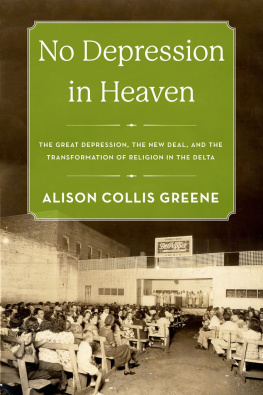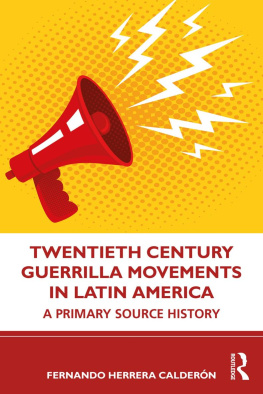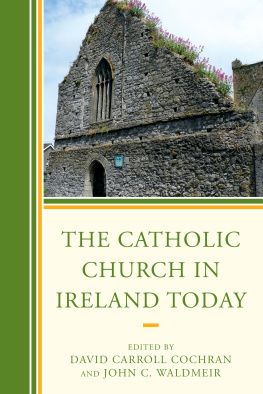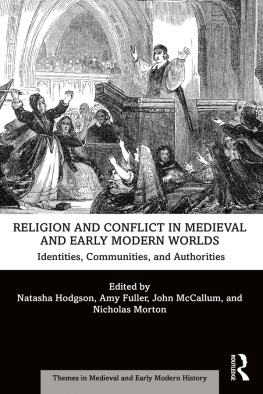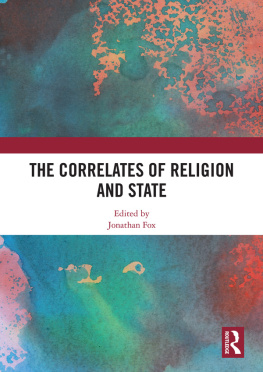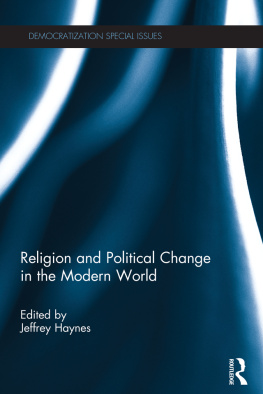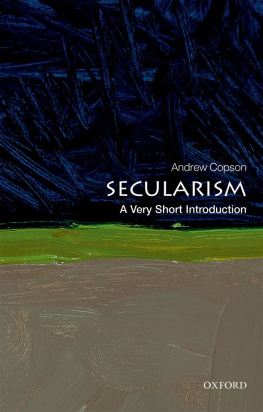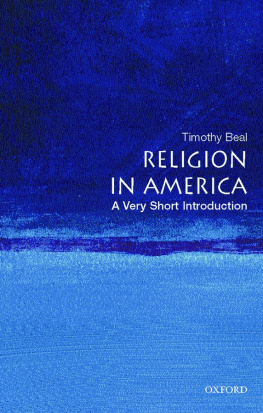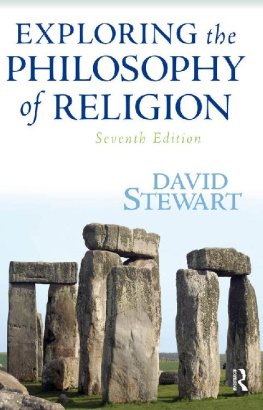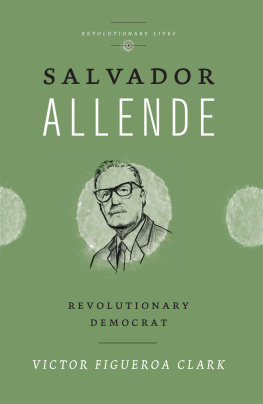1986 The University of North Carolina Press
All rights reserved
Manufactured in the United States of America
92 91 543
Library of Congress Cataloging-in-Publication Data
Main entry under tide:
Religion and political conflict in Latin America.
Bibliography: p.
Includes index.
1. Catholic ChurchLatin AmericaHistory20th centuryAddresses, essays, lectures. 2. Latin AmericaPolitics and government1948Addresses, essays, lectures. 3. Latin AmericaChurch historyAddresses, essays, lectures. I. Levine, Daniel H.
BX1426.2.R44 1986 261.7098 8524525
ISBN 08078-16892
ISBN 08078-41501 (pbk.)
Preface
Daniel H. Levine
Scholarship often follows the flag. When massive national (especially security) interests are engaged or threatened, the rush of public and official interest makes for quick fixes and a search for instant knowledge on hitherto marginal issues, groups, and areas. But quick fixes and instant scholarship are at best unreliable, at worst prejudicial and misleading. Lagging behind the pace of events, and often far removed from the experiences and motivations of real people, instant analyses distort reality by ignoring the historical roots of current crises and subordinating long-term explanation and understanding to short-term ideological and strategic interests.
For North Americans, the study of religion and politics is a case in point. Events in our own society have converged with sharp conflict in the Third World to cast serious doubt on long-held assumptions about the link between secularization and modernization and the predominance of supposedly rational concerns in politics and policy making. Events as distinct as Jonestown and the rise of the Moral Majority, renewed debate over school prayer and in general the resurgence of religious issues in political discourse have together rekindled attention to the continuing links of religion and politics in the United States. In the Third World, developments in different regions and traditions converge, giving urgency to the search for guidance and knowledge. The renewed political salience of Islam has been underscored by growing realization of the emergent radicalism of the Latin American churches. Increased public attention to Latin American Catholicism has been fed by publicity surrounding the 1979 meeting of the regions bishops at Puebla, by the Popes polemical visits to the region, and above all by the escalating crisis in Central America in which religious themes and actors have played a notable role.
Understanding this process is difficult. It is not that no scholarly work exists. Even setting aside the obvious flaws of instant analysis, we still find a large body of theoretical and empirical work on religion, politics, and their relation. But there are problems. In theoretical terms, much of this work remains wedded to the prejudices of nineteenth-century Marxist and liberal thought, which made religion epiphenomenal, or at best doomed to privatization and slow decline in the face of science and secularization. But this position clearly will not do. Religion is not static, nor is it in visible decline. Indeed, far from dwindling, the links between religion and politics seem to grow in creative and often surprising ways around the globe. The phenomenon is not limited to Latin America, as a glance at Iran, Poland, southern Africa, or the career of the Moral Majority reminds us.
Understanding has also been hampered by the narrowness and parochialism of disciplinary traditions. Anthropologists, for example, have generally taken popular belief and practice as part of a homogeneous world view, rooted in unchanging communities. Sociologists and political scientists, in turn, have focused largely on institutions, examining the church and its stance on issues irrespective of the concerns, practices, and beliefs of the faithful. Neither approach will do. Popular and institutional religion are not well understood if considered apart. Popular religion is not a spontaneous, natural product. Rather, it draws on the stock of resources (material and symbolic) which religious institutions provide to build a coherent explanation of everyday life. Popular groups change as well and, in changing, rework their ties to established structures of power and justification in all spheres of life. Institutional religions are not static either. As we shall see, they change continuously, and in any case, institutional analysis need not be limited to traditional themes of formal structure or legal arrangements. Institutions create and hold loyalties, organize behaviors, and project symbols, meanings, and material resources across time and space. The links of popular to institutional dimensions are thus an empirical question and, as the essays collected here show, are increasingly a matter of conflict and struggle. Neither can be understood alone: it is the intersect that counts.
The standard response to reflections of this sort is to call for more research, preferably interdisciplinary. But it will clearly not be enough to put sociologists, anthropologists, theologians, and political scientists together in a room (or in a volume) and hope for truly interdisciplinary results. Each individual study must transcend disciplinary lines and bring the tools and perspectives of various traditions together. The ideal study should address ideological change while remaining sensitive to the institutional interests and continuities that shape the impact of new ideas. Emergent groups must be recognized and set in the context of the social classes from which they draw. Historical depth is required, with close attention to the way people make sense of their experiences and organize to deal with them. The developing practice of everyday life must be assessed and located in the context of the ideological formations, institutions, and lines of conflict any given social order provides.
To address these concerns, and to stimulate new lines of research and reflection, the Joint Committee on Latin American Studies of the Social Science Research Council sponsored a planning meeting (March 1980) and later a conference (March 1982) on the general topic of popular religion, politics, and culture in Latin America. These meetings laid the basis for this book, and therefore a brief comment seems appropriate here. Planning meetings are used by the Social Science Research Council to outline the state of the art, define central issues, and spur new work in important and hitherto neglected areas. To this end, twelve scholars from different disciplines were invited to submit short statements and then to gather in New York for a days discussion and debate. Consensus emerged on the need to combine attention to the changing social structure and cultural formation of the populus (however defined in a particular society) with analysis of transformations in the institutional churches and in their explicit strategies. The changing uses of religious discourse by popular groups and the links of this process to the developing crisis of authoritarian rule were central to the groups discussions.
After the planning meeting, the Joint Committee authorized Daniel H. Levine and Robert Wasserstrom to organize an interdisciplinary, international conference, which convened in early March 1982 at the Belmont Conference Center in Elkridge, Maryland. Discussions at Belmont followed the lines already noted, with special emphasis on three themes. First, there was broad agreement on the need to join institutional and popular perspectives, linking each to national and international changes in culture, economy, and politics. Second, stress was given to the need to grapple squarely with the content of religious belief and to appreciate the eschatological and transcendental qualities of religion that inform the ways in which people give meaning to experience. After all, to replace Marxist or liberal prejudices with a purely instrumental view of religion would be no advance at all. Finally, developing lines of conflict within religion and politics were addressed, with particular concern for the possibilities of democratization in each.


